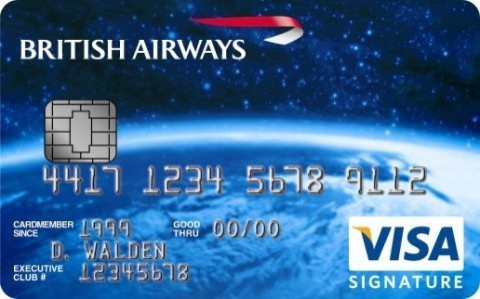Why America's Swipe-based Credit Cards are Outdated, Can Expose You to Fraud

With groundbreaking companies like Apple and Intel calling Silicon Valley home, this little piece of real estate on the western coast of the USA is virtually America's mother of invention, providing us with an impression that this country is ahead of the technology game.
However, that perception is often quickly shattered once we leave our shores for Europe and try to pay for something with an American-issued credit card.
Rejected.
Why? Because while American swipe-and-sign credit cards still come with the classic magnetic strip verification system, much of the rest of the world has long moved on to chip-and-pin cards built with microchips. Virtually all of Europe, as well as many countries in Asia and South America, have embraced the chip-and-pin system.
Hence, when traveling, American credit card users find it very difficult to purchase train tickets, pay at highway and bridge toll booths, parking lots, gas stations, and similar situations where only automatic dispensing machines are available.
Why is it taking it so long for U.S. banks to catch up with the rest of the world and convert to the chip-and-pin system? Because the U.S. has been stuck in a chicken-and-egg limbo -- U.S. card companies have been reluctant to issue the new chip-and-pin cards until retailers agree to accept them, but mercharts say they won't invest in new payment systems until card companies adopt the new cards.
America's slow adoption of these harder-to-clone cards -- officially called E.M.V. chips to stand for Europay, MasterCard and Visa -- has put the country in the leading position of the world's credit card fraud, accounting for 47 percent of the global credit and debit card fraud, while only generating 27 percent of the global total volume of purchases and cash.
While U.S. banks are taking steps to change this, availability of these E.M.V. cards have only so far been limited to high-end clients.
Chase Made New Moves on Monday
Chase Card Services, a division of JPMorgan Chase & Co. (NYSE: JPM), and British Airways (LON: IAG) announced today that they are rolling out the E.M.V. "chip-with-signature" technology on the British Airways Visa Card, which becomes available Monday with a $95 annual fee. The card features a microchip as well as a traditional magnetic strip to accommodate merchants in the U.S.
Earlier this year, Chase introduced two other chip-based cards, the J.P. Morgan Select card for an annual fee of $95 after the first year, and the Palladium card for an annual fee of $595.
Citi's E.M.V.-Compatible Corporate Cards
Citibank, a subsidiary of Citigroup Inc. (NYSE: C) announced a joint offering from Citibank and American Airlines, a subsidiary of AMR Corp. (NYSE: AMR) the Citi Executive AAdvantage World Elite MasterCard in August. A card that carries a host of travel perks as well as a hefty $450 annual fee.
This is the second round for Citi. The first credit card with E.M.V. technology, the Executive AAdvantage World MasterCard, was launched just a month earlier, aiming at high-net-worth cardholders.
Visa Plans to Accelerate the Migration to E.M.V. Chip Technology
Visa Inc. (NYSE: V) announced in February that it will provide incentives to merchants whose payment terminals are enabled for contact or dual contact and non-contact interface chip acceptance.
"Visa has repeatedly underscored the need for authentication solutions to move to dynamic data technologies such as E.M.V. chip," said Ellen Richey, chief enterprise risk officer at Visa. "We believe the future of security lies in dynamic data. Our experience suggests that as markets move to chip, they become less vulnerable to counterfeit fraud and, ultimately, to mass data compromise attacks."
MasterCard Urges ATM Owners to Upgrade to E.M.V. technology
MasterCard Inc. (NYSE: MA) issued an August 31 bulletin to member banks announcing an initiative related to E.M.V. at the ATM targeted at Maestro interregional transactions. The initiative will push ATM owners to equip their ATMs to facilitate E.M.V. by April 2013, according to Aite Group, a financial services advisory firm.
While this limits the scope of transactions covered, it still means a substantial capital investment to upgrade the machines.
Upgrading to the new hardware is expected to cost ATM owners between $2,000 and $4,000, Aite said. And this will be a big hardship for ATM operators, who will be faced with the choice of a substantial upgrade cost or an open-ended financial risk.
Banks Testing the Water
Wells Fargo & Co. (NYSE: WFC) is experimenting with the newer technology on 15,000 of its customers it has identified as frequent overseas travelers by giving them the new cards automatically, with no surcharge or fee. The company received overwhelming response and plans to roll out the chip-based cards more broadly. Meanwhile, U.S. Bank, a division of U.S. Bancorp. (NYSE: USB) gave 20,000 of its travel rewards customers cards with the chip.
Some credit unions have also begun offering credit or debit cards with chips, including the State Employees' Credit Union of Raleigh, N.C., and the United Nations Federal Credit Union in New York.
Further, some large merchants are backing the new technology: McDonald's Corp. (NYSE: MCD) and Nordstrom Inc. (NYSE: JWN) have voiced support of the chip-based card.
Editor's Note: This article corrects an earlier version that erroneously put Microsoft in Silicon Valley. Microsoft is headquartered in Redmond, Washington.
© Copyright IBTimes 2024. All rights reserved.






















